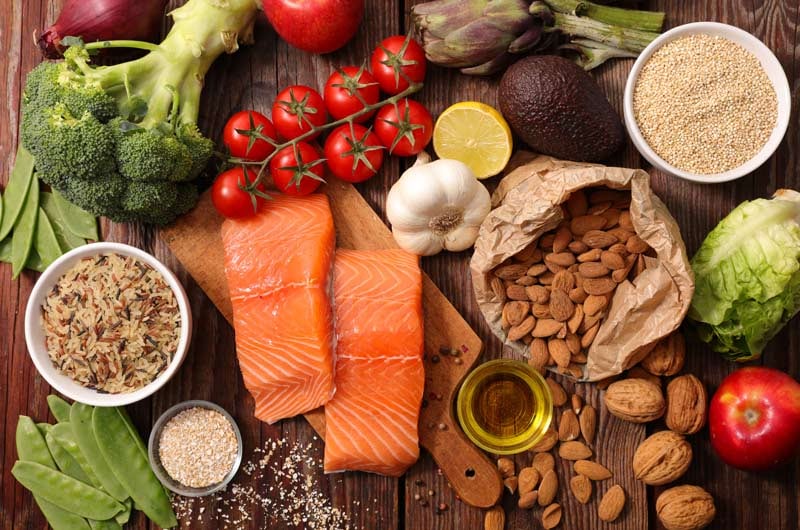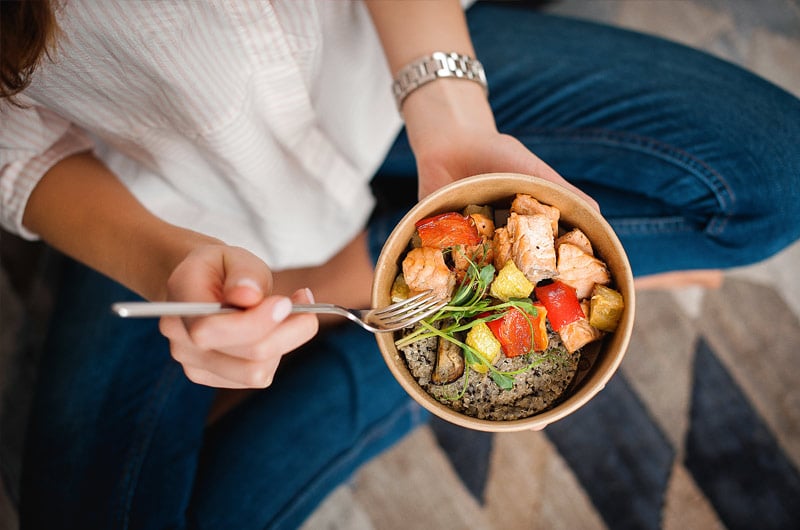Our food choices play an important role in the well-being of our planet. Trying to adopt a sustainable lifestyle, including at meal times with a sustainable diet, has positive repercussions for where we live.
These positive effects are not insignificant but too often they are forgotten about in the rush for the apparent convenience of fast, pre-packaged food, which is low in nutrition and may have been produced a long way from our local area. But let’s take things one step at a time...
What do we mean by a sustainable diet?

A sustainable diet means choosing food that provides the correct nutritional content and, at the same time, is underpinned by a strong focus on the direct consequences of how and where the food is produced.
The FAO (Food and Agriculture Organisation of the United Nations) defines a sustainable diet as one which has a low environmental impact and which, at the same time, seeks to fulfil the nutritional guidelines for healthy living for current and future generations. Sustainable diets protect and respect biodiversity and ecosystems both in terms of accessibility and cultural acceptability. Sustainable diets are financially fair and affordable, healthy and safe, and optimise both natural and human resources.
What are sustainable foods?
 Going food shopping is obviously a very important time. Even the place where we decide to go has consequences: supermarket, corner shop or a store are the visible part of (often) very different production and logistics processes.
Going food shopping is obviously a very important time. Even the place where we decide to go has consequences: supermarket, corner shop or a store are the visible part of (often) very different production and logistics processes.
What foods can be considered sustainable? Certainly seasonal fruit and vegetables, even more so if they are grown near to where we live. Why? Because very often eating locally grown fruit and vegetables (as well as cereals and pulses) goes hand-in-hand with organic farming that avoids the use of chemical additives, respecting wherever possible seasonality and, therefore, the environment.

Fish can also be a sustainable food: when we visit the fishmongers (or the fish counter in supermarkets) it is best to select products which bear the sustainable fishing mark (often showing the MSC logo, Marine Stewardship Council, the global leader in the certification of sustainable fish). This mark is a guarantee that the fish has been produced without using methods that devastate the seabed or which have a significant impact on natural habitats.
Being informed before making a purchase is crucial, even when choosing apparently simple products such as jam, oil, vinegar, or eggs. The more we know about a product, the more informed we are and, therefore, the more engaged we are with the well-being of the planet and with everything which comes under the definition of unsustainable food: non-seasonal fruit and vegetables, which use artificial heating and intensive production systems; meat from non-organic farms which pay little attention to the suffering of the animals; intensively farmed fish.
Lastly, for sustainable food, it is better to avoid almost all frozen products and “junk food”, not least because these are foods with a low nutritional value.
The crucial role of the end consumer

Whilst it is true that the environmental impact of the production of certain foodstuffs and their transport is not the direct fault of the consumer, it is the consumer them self who, through virtuous and new (good) behaviours and habits, can bring about changes to production methods, reducing their impact.
Obviously, this approach has more of an impact when the actions of individuals are multiplied and, by influencing friends and families, they become collective actions.
But where can one individual begin to protect the environment?
- Reduce waste: keeping an eye on the amount of food that we cook and serve up is an important way to reduce waste, so take care to weigh out ingredients and portions. Often overproduction on agricultural and livestock farms, together with overconsumption by end consumers, can easily result in high amounts of food waste being generated. Reducing food waste is an excellent way to take care of our planet.
- Informed choices: be informed, analyse, be prepared. Every choice we make, even the smallest one, is linked to an industry which, even if invisible when we go shopping, can result in practices which have an impact on the environment. For example, choosing animal-based ingredients and foodstuffs contributes to much higher energy and resource consumption compared with plant-based products. Wherever possible, try to avoid the former and embrace the latter; this is a shrewd choice and a good habit. Do not forget about how food is stored (for example vacuum packing, etc.)

It's your turn, leave your comment!
Get the latest from the Laica blog